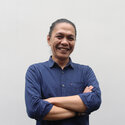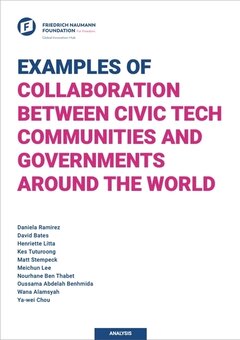Hacking Democracy
Hacking Democracy Conference: Examples of Collaboration between Civic Tech Communities and Governments Around the World
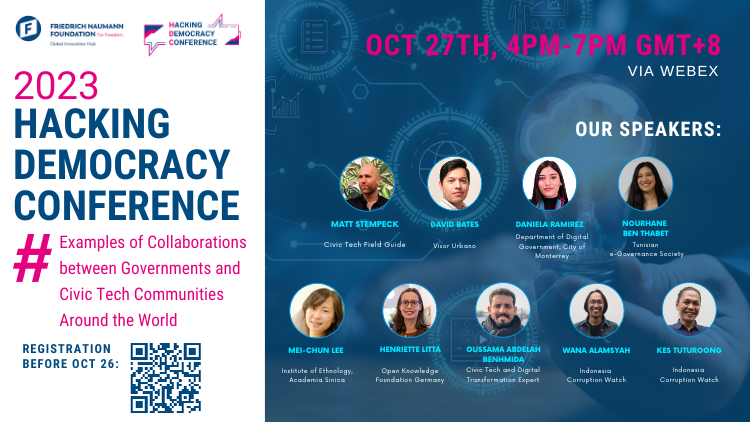
Have you ever wondered why digital services provided by governments are sometimes not ideal? Whether they are safe? Have you thought about how to push the government to improve those services? Have you thought about creating digital services or applications for democracy or social good by yourself , and invite governments to work with you? If so - FNF’s Hacking Democracy Conference is here for you! The Conference will be on Oct 27, 2023, GMT 8:00-11:00am (GMT+8 16:00-19:00), online via webex. Please click here to register!
In 2023, we want to demonstrate how the collaboration between governments and civic tech communities successfully “reprograms” the making of public digital services or applications. Therefore, we invite experts and practitioners around the world to write case studies about their country for our “Examples of Collaboration between Government and Civic Tech Communities around The World” publication, which collects case studies from Germany, Indonesia, Morocco, Mexico, Tunisia, Taiwan, and the United States. We will share with you this publication at FNF’s Hacking Democracy Conference!
All the authors of this publication will present their studies at this Conference. By listening to the presentations of all the authors for this publications, you will learn how civic tech communities around the world successfully bring the people and governments together to co-create digital services or applications for facilitating democracy, transparency in public procurement, pandemic preventions, environmental protection, and many creative projects. Policy makers and civic tech community members can also learn what governments around the world have done to engage with or encourage civic tech projects and what else need to be done.
Please click here to register before Oct 26!
Agenda (GMT time zone)
8:00-8:05am | Opening Remarks — Anna Marti, Head of FNF Global Innovation Hub
8:05-9:30am | Cases of America, Mexico, Tunisia, and Taiwan
Panelists:
-
Matt Stempeck, Curator, Civic Tech Field Guide
-
David Bates, Outreach Coordinator, Visor Urbano & Daniela Ramirez, Chief of Projects, Department of Digital Government, City of Monterrey
-
Nourhane Ben Thabet, President, Tunisian e-Governance society
-
Mei-chun Lee, Assistant Research Fellow, Institute of Ethnology, Academia Sinica (will present via video)
*Each panelist will present their case for 10-15 minutes, and after that we will have around 25 minutes for Q & A session.
9:30-9:40am | Break
9:40-10:55am | Cases of Germany, Indonesia, and Morocco
Panelists:
-
Henriette Litta, Managing Director, Open Knowledge Foundation (presenting via video)
-
Oussama Benhmida, Civic Tech and Digital Transformation Expert
-
Wana Alamsyah, Head of Knowledge Management Division, Indonesia Corruption Watch & Kes Tuturoong, Officer of Knowledge Management Division, Indonesia Corruption Watch
Each team will have 10-15 mins to present their case, and after that we will have 25 mins for Q & A session.
Meet our Panelists:
Matt Stempeck (he / him) is a writer, researcher, technologist, and activist. He’s been building the field of what we call civic technology since 2005. Matt’s experience spans tiny non-profits, big tech platforms, academia, journalism, and history-shaping campaigns. Matt curates the Civic Tech Field Guide, the most comprehensive collection of democracy tech projects in the world. And he’s Technologist in Residence at Cornell Tech, where he organizes the Siegel PiTech Impact Fellowship, embedding highly technical PhD students with public interest organizations across sectors. Matt served as Director of Civic Technology at Microsoft in New York City, establishing strategic partnerships and re-orienting the company’s public sector efforts for the participatory era. Education-wise, Matt became / earned a Master of Science at the MIT Media Lab’s Center for Civic Media. While at the Media Lab, he quantified global media attention to stories like Trayvon Martin’s, designed a peer-to-peer humanitarian aid marketplace, and built LazyTruth, an award-winning product to fight misinformation online way back in 2013. Matt also holds a Bachelor of Arts with high honors from the University of Maryland College Park, where he wrote his undergraduate thesis on the disruption participatory media brought to political journalism. Originally from Boston, Matt’s now based in Lisbon, Portugal and works on engagement projects with a creative collective appropriately known as the Bad Idea Factory.

David is a Govtech, Social Innovation, and Tech for Good advocate. He promotes the use of exponential technologies to develop creative and scalable solutions for global challenges. He majored in Communication and later specialized in Impact Measurement for Social Development and Human-Centered Design for Social Innovation. With his experience in ecosystems development, project management, strategic alliances development, and by harnessing multisectoral collaboration, he seeks to create desirable futures in which no one is left behind.

Daniela is a graduate law student from the University of Guadalajara and holds a post-graduate Communications and Political Marketing degree from the Panamerican University. Daniela was the communications coordinator at Visor Urbano, where she was committed to implementing digital transformation and transparency tools resulting in less government waste and corruption. Now she is working as Chief of Projects at the Department of Digital Government of the City of Monterrey.

Nourhane Ben Thabet is an experienced Telecom Consultant, supporting telecom operators in the work of deploying the fiber and 5G network in France and recommending the best optimal solutions for fiber connectivity. She graduated in GIS and Remote Sensing from the Science University of Tunis. Besides her following to the democratic transition in Tunisia, she is more focusing on citizen engagement, access to information and open governance issues. She was a member of “The Tunisian e-governance society” and has become, since December 2021, the President of the society, which is a non-governmental and non-profit organization engaged in promoting Open Governance and citizen participation and in supporting the implementation of evidence-based policies to transform the public.

Meichun Lee is an anthropologist with research interests in civic tech, digital activism, data politics, and mis/disinformation in Taiwan and East Asian. She holds a PhD from the University of California-Davis and an MPhil from the University of Cambridge. Currently, she is the assistant research fellow at the Institute of Ethnology, Academia Sinica, Taiwan. Her dissertation investigated how civic tech activists in Taiwan translate openness from digital technologies to politics, and create an ambivalent space that makes activism possible regardless of the changing political landscape. Lee’s works have been published in PoLAR: Political and Legal Anthropology Review and Anthropology Now. She also writes for GUAVA Anthropology and The Reporter. Lee is also the co-author of Taiwan Open Government Report 2014-2016.

Dr. Henriette Litta is Managing Director of the Open Knowledge Foundation Germany (OKF DE). Our goal is to strengthen digital sovereignty of citizens, to enable democratic participation and to support an ethical approach to technology for the common good. Before joining OKF DE, Henriette held leadership positions at the Berlin-based Expert Council on Migration and at the Hertie School of Governance. She studied political science in Berlin, Philadelphia and Singapore. In her doctoral dissertation, Henriette analyzed state cooperation on environmental issues. During her academic education, she received scholarships from Fulbright, the Heinrich Böll Foundation and the Studienstiftung des deutschen Volkes.
(Photo Credit: OKF DE)
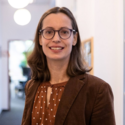
Oussama Abdelah Benhmida is an IT professional committed to addressing societal issues through innovative tech solutions. As Co-founder and Product Manager of Lab4Net, he has led user-centric tech projects for education and community governance, demonstrating his leadership in an agile environment. His work has spanned Africa and the MENA region, equipping him with an in-depth understanding of the unique challenges these areas face. A polyglot fluent in Darija, Arabic, French, and English, Oussama is skilled in managing diverse stakeholder relations. In addition to his technical expertise, he has played an active role in Tanmia.ma, a Moroccan NGO advocating for open-source solutions to community challenges. His key contributions include leading Tanmia's restructuring for optimized open-source solutions delivery, co-designing programs promoting open-source philosophy, and fostering collaborations to tackle pressing societal issues.
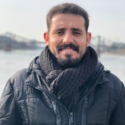
Wana Alamsyah is the Head of Knowledge Management Division in an NGO called Indonesia Corruption Watch (ICW) with eight years experience working on anti-corruption and democracy. Wana specializes in conducting investigations on the public procurement sector using open source intelligence (OSINT). Wana is also a trainer to provide training regarding access to information, investigation, and cyber security.

Kes Tuturoong is a researcher in the Knowledge Management Division of Indonesia Corruption Watch, a national watchdog working on anti-corruption and democracy. Kes develops red flag analysis and implements them in an online platform developed by ICW, Opentender, to arm the public in scrutinizing government procurement data. Kes also develops platforms and administer systems using open source tools.
